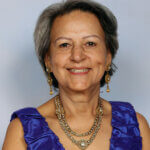Sixth Grade
Curriculum Guidelines – 6th Grade
English Language Arts
Mathematics
Social Studies
Science
To help with the transition into middle school, 6th grade students are divided into four homerooms so that homeroom teachers can focus on the cognitive as well as the affective development of each child. Students in 6th grade have eight different classes each day with different teachers for each subject. Throughout the middle school years, teachers help students with social and organizational skills in addition to the accelerated academic information. Teachers use a multi-material approach to instruction that encourages group work and collaboration within the traditional school program. In addition to regularly scheduled P.E. and Spanish classes, students have a quarterly arts rotation which includes art, music, drama, and computer. Students attend Spanish twice weekly, with one of the three sections of Spanish offered for those students who are Spanish speakers. Students also have elective classes two days per week. First quarter elective for 6th grade is an Executive Functioning/Study Skills class.
English
- Learn the conventions of Standard American English and apply those principles when writing and speaking.
- Compose written text in a variety of forms: narrative, persuasive, and expository.
- Generate research questions and use reliable sources to answer those questions.
- Develop note taking skills.
- Use orthographic principles to spell words correctly.
- Learn and apply strategies to improve formal speaking skills.
Literature
- Select texts for independent reading and develop reading stamina.
- Learn and apply strategies for understanding new vocabulary.
- Learn and apply strategies for improving reading fluency, accuracy, and comprehension.
- Identify the characteristics of the genres of literature
- Make personal connections to text
- Identify the author’s purpose and message in a text
Mathematics
- Understand the meanings, uses and representations of numbers.
- Apply critical reasoning for problem solving.
- Add, subtract, multiply and divide rational numbers (whole numbers, integers, fractions, mixed numbers, decimals, positives, negatives) fluently.
- Evaluate expressions with variables.
- Understand the relationship between fractions, decimals, and percents and convert between them.
- Work problems involving proportional relationships.
- Use experimental and theoretical probability to make predictions.
- Solve problems involving perimeter/circumference, area, and volume.
Science
- Compare properties of matter, explain arrangement of the periodic table, compare and contrast metals, metalloids, and nonmetals.
- Model the layers of Earth and classify rocks by process of formation.
- Identify and describe tectonic plate movements.
- Explore the use of energy and investigate the types of energy transformation.
- Explore changes in the motion of objects, calculate speed, graph changes and investigate Newton’s Laws.
- Investigate simple machines.
- Describe components of the universe, explore wavelengths, and model the interaction between the sun, moon and Earth.
- Investigate and model weather patterns.
- Identify and describe the components of the solar system.
- Describe basic components of cells and compare characteristics of prokaryotes and eukaryotes.
- Classify organisms.
- Describe components of ecosystems.
Social Studies
- World History
- North Africa and Southwest Asia
- Mesopotamia & Egypt
- Religions of the Middle East
- Middle Eastern countries
- China and neighbors – Japan, Korea
- Southeast Asia mainland & islands
- Europe (early, modern, western, eastern)
Religion
- The Religion course takes a journey through the Old Testament accompanied by the Family Life series.
- Learn and recite Catholic prayers and demonstrate reverence during prayer and Mass.
- Demonstrate ways in which God reveals himself to us.
- Compare the different events that take place in the liturgical calendar.
- Demonstrate God’s plan through the lives of the Patriarchs of our Faith.
- Recite the Ten Commandments.
- Explore the lives and the role of the early prophets.
- Explain how the Old Testament prepares us for the coming of Jesus.
Spanish
- 6th grade covers the first half of Spanish 1.
- In depth review of vocabulary and grammar concepts covered Elementary School.
- Vocabulary and grammar concepts are expanded upon.
- Learn strategies to assist in building vocabulary.
- Continue to build upon the foundation of oral and written communication in alignment with the national standards set by ACTFL (American Council on the Teaching of Foreign Languages).
- Develop cultural awareness as we explore Hispanic Countries and their culture.
- Make connections between Spanish and other subjects to enhance their knowledge.





